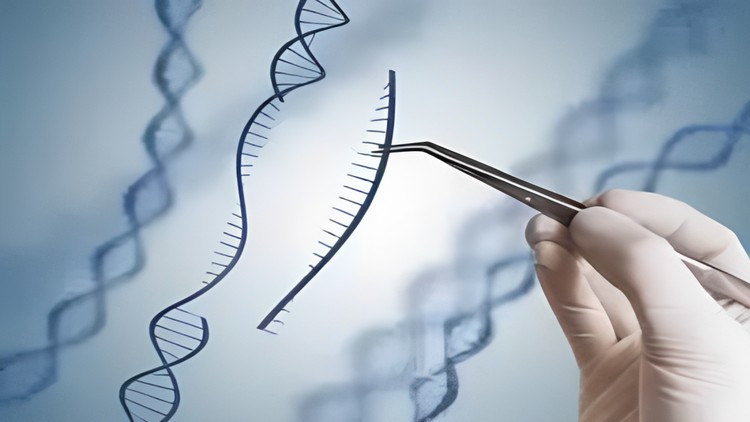
Genetic Engineering
What you will learn
Genetic Engineering can provide a precise diagnosis which might affect the medical management of symptoms, or provide treatment options.
In learning Genetic Engineering , we are learning the secrets of life itself. With this knowledge come discoveries in medicine, agriculture and new drugs.
Learning experience from experienced and certified Trainers.
Hands-on Projects to practice various concepts & tools, evaluated by our lead trainer.
Add-On Information:
Note➛ Make sure your 𝐔𝐝𝐞𝐦𝐲 cart has only this course you're going to enroll it now, Remove all other courses from the 𝐔𝐝𝐞𝐦𝐲 cart before Enrolling!
- Course Caption: Genetic Engineering
- Dive into the transformative world of Recombinant DNA Technology & Genetic Engineering, where you’ll unravel life’s intricate mechanisms and gain the power to precisely manipulate genetic material. This course offers a comprehensive journey through foundational principles and cutting-edge applications shaping modern biotechnology.
- Master the essential toolkit of molecular biology, beginning with detailed insights into DNA extraction, purification, and quantification techniques. Understand the critical steps for isolating genomic or plasmid DNA with high fidelity.
- Explore the power of Polymerase Chain Reaction (PCR), learning its diverse applications from gene amplification and diagnostics to mutagenesis. Grasp various PCR methodologies, including real-time PCR (qPCR) and reverse transcription PCR (RT-PCR).
- Become proficient in utilizing restriction enzymes and DNA ligase, the molecular scissors and glue, to precisely cut and paste DNA fragments. Understand how these enable the construction of novel DNA sequences and recombinant plasmids.
- Delve into the design and function of cloning vectors, including plasmids, bacteriophages, and cosmids. Learn to select the appropriate vector for different gene cloning and expression strategies in prokaryotic and eukaryotic systems.
- Uncover the revolutionary potential of CRISPR-Cas9 gene editing technology, alongside other precise genome editing tools like ZFNs and TALENs. Understand their mechanisms, applications in gene therapy, disease modeling, and agricultural improvement, plus ethical considerations.
- Examine principles of gene expression and protein production in various host systems. Learn to engineer bacteria, yeast, insect cells, and mammalian cells to synthesize desired therapeutic proteins, industrial enzymes, or vaccine components.
- Investigate advanced applications such as synthetic biology and metabolic engineering. Learn to design and construct new biological parts or re-engineer metabolic pathways for producing biofuels, biochemicals, and pharmaceuticals.
- Discuss the critical role of bioinformatics tools in supporting recombinant DNA technology, including sequence alignment, primer design, gene prediction, and phylogenetic analysis, enabling efficient experimental design and data interpretation.
- Gain a deep appreciation for the ethical, legal, and social implications (ELSI) of genetic engineering, fostering responsible scientific practice and informed discussions on gene therapy, designer babies, and genetically modified organisms (GMOs).
- PROS:
- Acquire sought-after expertise in a rapidly evolving field with high demand across biomedical, agricultural, and industrial sectors.
- Develop critical thinking skills to navigate complex biological challenges and contribute to innovative solutions for global health and sustainability.
- Foster an ethical framework for scientific inquiry, ensuring a responsible approach to powerful genetic technologies.
- Unlock diverse career paths in research and development, diagnostics, pharmaceuticals, academia, and regulatory affairs.
- CONS:
- The profound ethical and societal dilemmas inherent in manipulating life’s fundamental code require continuous, careful consideration and can be a source of significant debate and public concern.
English
language